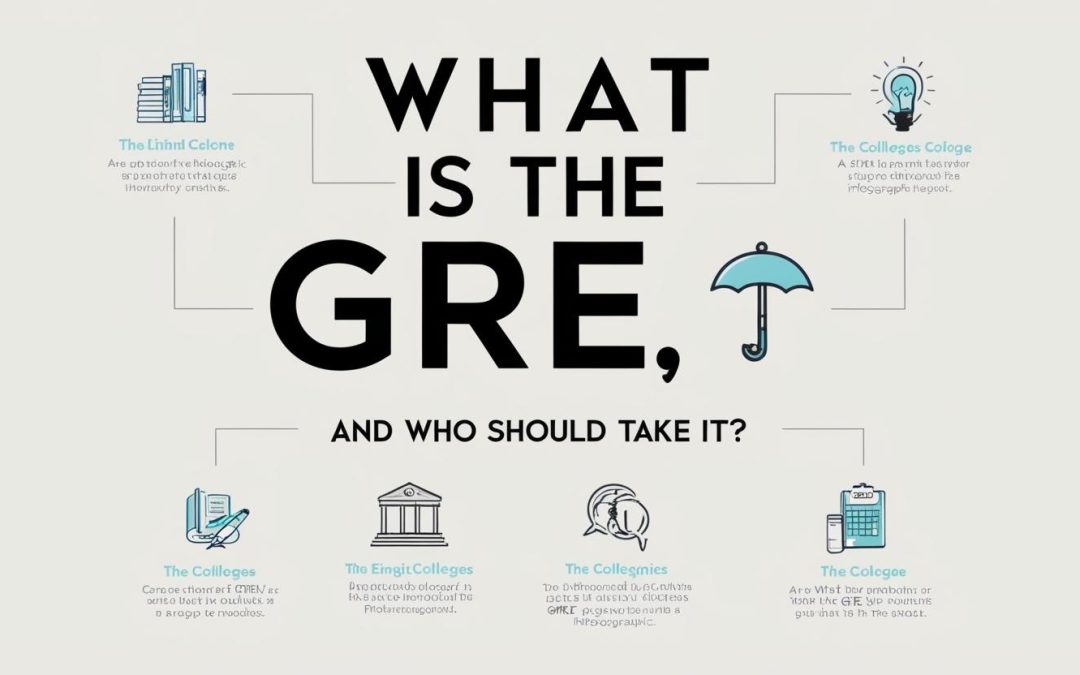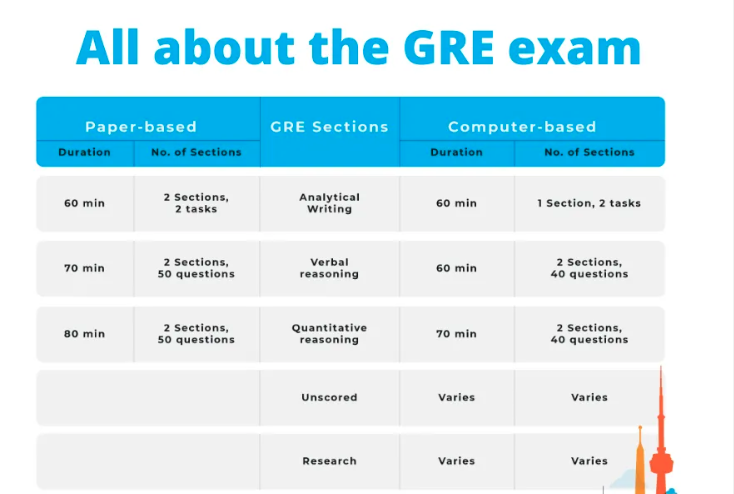Are you thinking about pursuing graduate school and wondering if the GRE is part of the process? You're in the right place! At TakeMyGREExam.com, we understand that preparing for graduate school can be both exciting and overwhelming. That's why we're here to help you understand What the GRE is and who should take it. We'll break down everything you need to know, from who needs to take the GRE to what the exam actually tests and how long it takes. Let's dive in.
What is the GRE?
The GRE (Graduate Record Examination) is a standardized test that is commonly required for admission to graduate programs. It helps schools assess applicants' readiness for advanced study by evaluating their skills in critical thinking, reasoning, and problem solving. If you're applying to a graduate program, there's a good chance the GRE might be part of your application process.
The GRE is administered by ETS (Educational Testing Service) and is accepted by thousands of graduate schools around the world. Whether you're planning to pursue a Master's, PhD, or other advanced degrees, the GRE is a key step to show your qualifications and readiness for graduate level work.
Who Needs to Take the GRE?
Now that you know what the GRE is, you’re probably asking, “Who actually needs to take the GRE?”
The answer depends on the specific graduate program and school you’re applying to. While the GRE is not required by every graduate school, it is required by many, especially for programs in fields like:
-
Science
-
Engineering
-
Social Sciences
-
Humanities
-
Business (some MBA programs also accept GRE scores)
If you're applying for a graduate program in one of these areas, you’ll likely need to take the GRE. Some schools may even accept other standardized tests (like the GMAT for business school or LSAT for law school), but the GRE remains the most widely recognized exam for general graduate school admissions.
It’s always a good idea to check the specific requirements of the programs you’re interested in to see if the GRE is mandatory. Some programs may waive the GRE requirement based on other qualifications like work experience, an undergraduate GPA, or other credentials.
If you're unsure whether the GRE is required, don't hesitate to reach out to the admissions office of the school or program you're applying to. They'll give you all the details about whether or not you need to take the test. What Does the GRE Test For?
The GRE tests your skills in three main areas that are critical for success in graduate school:
-
Verbal Reasoning: This section measures your ability to analyze and evaluate written material, as well as understand and apply complex concepts. It focuses on your vocabulary, reading comprehension, and your ability to reason with text.
-
Skills Tested: Vocabulary, Reading Comprehension, Critical Thinking.
-
-
Quantitative Reasoning: This section tests your math and problem-solving abilities. It covers a range of topics including algebra, geometry, and data analysis. Don’t worry while the math can be challenging, you don’t need advanced math knowledge to do well. It’s about your ability to work with quantitative information and solve problems efficiently.
-
Skills Tested: Arithmetic, Algebra, Geometry, Data Analysis.
-
-
Analytical Writing: This section evaluates your ability to clearly express your thoughts, arguments, and analysis in writing. You will be asked to write two essays: one that analyzes an argument and one that addresses a specific issue. This part of the exam is important because it reflects your ability to communicate complex ideas in an organized and persuasive manner.
-
Skills Tested: Writing Skills, Argument Construction, Analytical Thinking.
-
In addition to these core sections, the GRE also includes an unscored research section. This section is used by ETS to test new questions for future exams and does not affect your score. It’s randomly placed in the exam, so you won’t know which section is the research one.
How Long is the GRE Exam?
The GRE exam is a computer-based test that lasts for approximately 3 hours and 45 minutes. Here’s a breakdown of the time allocation for each section:
-
Verbal Reasoning: 2 sections, each 35 minutes long.
-
Quantitative Reasoning: 2 sections, each 35 minutes long.
-
Analytical Writing: 2 tasks (1 for each essay), with 30 minutes allotted for each task.
-
Research Section: This is an unscored section that can vary in length, but it doesn’t affect your overall time significantly. It’s an extra section that you may or may not encounter during your exam.
Break Time: During the test, you’ll also get a 10-minute break after the third section. This is a good opportunity to recharge and prepare for the second half of the test.
It’s important to pace yourself during the exam so you have enough time to answer all the questions without feeling rushed. Practicing with timed practice tests can help you build your stamina and get used to the pacing of the real GRE.
Tips for Preparing for the GRE
Now that you know the basics about the GRE, let’s talk about how to prepare for this important exam. Here are some helpful tips:
-
Understand the Test Format: Familiarize yourself with the structure of the test and practice with full-length, timed tests. Knowing what to expect on test day will help you feel more confident.
-
Use Official Study Materials: Official GRE prep materials from ETS, including practice tests, guides, and sample questions, are your best bet for studying. These materials give you a realistic sense of what the test will be like.
-
Create a Study Plan: Start early and set aside regular study time. Focus on your weaker areas, but don’t neglect your strengths. Consistent practice is key to improving your score.
-
Practice Time Management: The GRE is a timed test, so practicing under time constraints will help you learn how to manage your time effectively on exam day.
-
Take Care of Yourself: Don’t forget to get enough sleep, eat well, and manage stress as you prepare for the GRE. A healthy body and mind will help you perform better on the test.
Conclusion: Should You Take the GRE?
If you’re applying for graduate school in a program that requires the GRE, then yes, you’ll need to take it! The GRE is an important part of your application process, and understanding what the test involves, how long it lasts, and what it tests for is crucial to your success.
The best way to succeed on the GRE exam is by being well prepared. Make sure to take advantage of study resources, practice tests, and a solid study plan to improve your chances of getting a great score.
At TakeMyGREExam.com, we’re here to support you with all the tools and resources you need to prepare for the GRE. With a little dedication and the right strategy, you’ll be ready to take on the test and move one step closer to your graduate school dreams!
Good luck, and happy studying.



